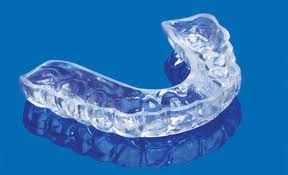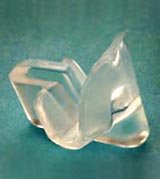
How to Stop Grinding & Clenching Teeth
In many cases, bruxism is mild and no treatment is necessary for occasional teeth grinding. However, if there is evidence of damage caused by bruxism (worn or broken teeth, broken dental restorations, jaw pain etc) or your dentist evaluates that there is increased risk of these problems in the future, your dentist will suggest a bruxism treatment plan.
Treatment options for teeth grinding and clenching
Because bruxism may have a number of causes, a variety of treatments for teeth grinding or clenching can be used. The appropriate treatment for each case depends on what is the main cause of the bruxism problem.
Stress management - how to stop teeth grinding with relaxation techniques
Everyday stress is a major contributor to teeth grinding. Keeping the life stress to a minimum may reduce the risk of developing bruxism problems.
- Professional counseling for stress management.
- Long-term management of stressful situations in your way of life.
- Progressive Relaxation techniques such as yoga.
- Taking a warm bath before bedtime can help to stop teeth grinding at night.
- Daily Exercise. A walk or other mild exercise may help relieve some of the tension and stress that’s causing bruxism.
- Any other activity that helps you feel relaxed, such as listening to music, reading a book etc.
- Relaxing your facial and jaw muscles throughout the day. Rest the tongue upward while keeping the teeth apart and lips closed. Teeth should be touching only when you’re chewing or swallowing. Drop your jaw and feel the muscles relax – then try to maintain that feeling. Avoid hard foods that require increased jaw muscles activity for chewing.
Dental night guards for teeth grinding treatment
The most common treatment suggested by dentists to cure bruxism is a custom-made specially-fitted dental night guard that is worn during sleep to prevent unconscious teeth grinding.
 A dental night guard is a thin horseshoe-shaped appliance made of hard plastic. The night guard fits between your upper and lower teeth, to prevent further dental damage to teeth by absorbing the force of clenching or grinding.
Besides of preventing the two sets of teeth from grinding against each other, night guards also aid in changing the patient's behavior.
A dental night guard is a thin horseshoe-shaped appliance made of hard plastic. The night guard fits between your upper and lower teeth, to prevent further dental damage to teeth by absorbing the force of clenching or grinding.
Besides of preventing the two sets of teeth from grinding against each other, night guards also aid in changing the patient's behavior.
Your dentist can make you a custom-fitted night guard by taking accurate impressions of your upper and lower teeth, that are used to create a model of how your teeth fit together. Based on this model the dentist forms a customized heat-processed hard plastic nightguard. Over-the-counter mouth guards are also available and they're less expensive than custom guards, but may not be as comfortable and effective as one custom-made for you. It is very important for the success of the bruxism treatment that the night guard fits perfectly.
 Another type of appliance used for the treatment of bruxism is the NTI Tension Suppression System. The NTI device is much easier to wear as it gets attached to the front two teeth only,
keeping the back teeth (molars) completely separated. The purpose of a night guard or NTI is to stop this destruction of tooth structure right away and reduce jaw clenching and teeth grinding.
Another type of appliance used for the treatment of bruxism is the NTI Tension Suppression System. The NTI device is much easier to wear as it gets attached to the front two teeth only,
keeping the back teeth (molars) completely separated. The purpose of a night guard or NTI is to stop this destruction of tooth structure right away and reduce jaw clenching and teeth grinding.
Normally you need to wear the night guard each night for it to work properly. It takes a few nights to get adjusted to, but most people who use night guards for teeth grinding quickly get used to them.
Behavior therapy - Biofeedback to cure bruxism
Biofeedback is one of the modern methods for bruxism treatment. Behavior therapy is a form of complementary and alternative medicine that uses a variety of monitoring procedures and equipment to teach the bruxism patient to control involuntary body responses.
During a biofeedback session, electrical sensors are applied that measure the amount of muscle activity of the mouth and jaw, and then feed the information back to the patient via auditory and visual cues, such as a beeping sound or a flashing light. This feedback, is indicating to the patient when abnormal muscle activity is taking place so that the behavior can be changed and finally stop the teeth grinding habit.
Orthodontic treatment
If bruxism is associated with dental problems such as malocclusion, your dentist may recommend orthodontic treatment to correct misaligned teeth.
Other treatments for teeth grinding
- Hypnosis has also been used with success in some individuals to cure bruxism.
- Medications - In general, medications aren't very effective for treatment of bruxism. Taking a muscle relaxant before bedtime may help in some cases. If bruxism is developed as a side effect of an antidepressant medication, your doctor may change your medication or prescribe another medication to counteract bruxism.
- Reducing alcohol, caffeine or other stimulants intake may help to reduce nighttime teeth grinding and jaw clenching.
- Change your sleep position. A supine position with good neck support allows the lower jaw to rest and relax. Changing your sleep position combined with the use of a night guard for teeth grinding can significantly help in the treatment of bruxism.
- Apply heat. Applying a warm, wet washcloth to the side of your face can help relax muscles sore from clenching.
Repair of damages to teeth due to bruxism
In severe cases of bruxism, damaged teeth can be repaired by replacing the worn chewing surfaces of the teeth with an artificial crown. The restoration of the chewing surfaces of teeth becomes necessary when the tooth wear caused by bruxism has led to fractures, sensitivity or problems in chewing. Other restorative treatment options include tooth bonding and porcelain dental veneers.
For most people, bruxism is an occasional problem of little consequence. But for others, teeth grinding and/or teeth clenching can cause TMJ disorders and permanent damage to the teeth. It is important for successful treatment of teeth grinding and clenching, that the dentist recognizes early the teeth grinding symptoms and identifies correctly what causes bruxism, so that the proposed treatment will be suitable for the individual patient's needs.
![]() The cost involved with dental treatments can be significant and many patients may not afford it if they are not covered by their dental insurance.
Learn how to choose a dental insurance plan that will provide the best dental treatment to you and your family.
The cost involved with dental treatments can be significant and many patients may not afford it if they are not covered by their dental insurance.
Learn how to choose a dental insurance plan that will provide the best dental treatment to you and your family.


